BMW X1 vs Vauxhall Astra - Differences and prices compared
Compare performance (326 HP vs 225 HP), boot space and price (38200 £ vs 25200 £ ) at a glance. Find out which car is the better choice for you – BMW X1 or Vauxhall Astra?
Costs and Efficiency:
Price and efficiency are key factors when choosing a car – and this is often where the real differences emerge.
Vauxhall Astra has a decisively advantage in terms of price – it starts at 25200 £ , while the BMW X1 costs 38200 £ . That’s a price difference of around 13037 £.
Fuel consumption also shows a difference: Vauxhall Astra manages with 2.20 L and is therefore to a small extent more efficient than the BMW X1 with 2.50 L. The difference is about 0.30 L per 100 km.
As for electric range, the Vauxhall Astra performs significantly better – achieving up to 454 km, about 373 km more than the BMW X1.
Engine and Performance:
Under the bonnet, it becomes clear which model is tuned for sportiness and which one takes the lead when you hit the accelerator.
When it comes to engine power, the BMW X1 has a evident edge – offering 326 HP compared to 225 HP. That’s roughly 101 HP more horsepower.
In acceleration from 0 to 100 km/h, the BMW X1 is clearly perceptible quicker – completing the sprint in 5.40 s, while the Vauxhall Astra takes 7.50 s. That’s about 2.10 s faster.
In terms of top speed, the BMW X1 performs hardly perceptible better – reaching 233 km/h, while the Vauxhall Astra tops out at 210 km/h. The difference is around 23 km/h.
There’s also a difference in torque: BMW X1 pulls clearly perceptible stronger with 477 Nm compared to 360 Nm. That’s about 117 Nm difference.
Space and Everyday Use:
Beyond pure performance, interior space and usability matter most in daily life. This is where you see which car is more practical and versatile.
Both vehicles offer seating for 5 people.
In curb weight, Vauxhall Astra is to a small extent lighter – 1341 kg compared to 1575 kg. The difference is around 234 kg.
In terms of boot space, the BMW X1 offers clearly perceptible more room – 540 L compared to 422 L. That’s a difference of about 118 L.
In maximum load capacity, the BMW X1 performs somewhat better – up to 1545 L, which is about 206 L more than the Vauxhall Astra.
When it comes to payload, Vauxhall Astra barely noticeable takes the win – 509 kg compared to 500 kg. That’s a difference of about 9 kg.
Who wins the race in the data check?
The Vauxhall Astra is clearly superior overall in the objective data comparison.
This result only shows which model scores more points on paper – not which of the two cars feels right for you.
Costs and Consumption
View detailed analysis
Engine and Performance
View detailed analysis
Dimensions and Body
View detailed analysis
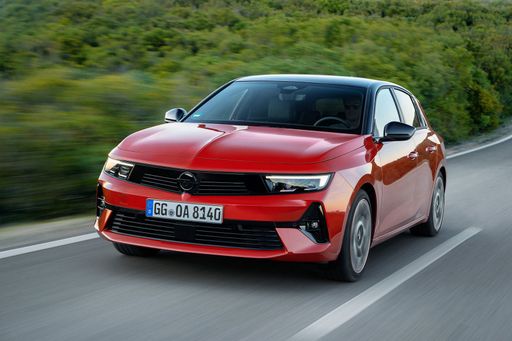
Vauxhall Astra
BMW X1
The BMW X1 brings a premium feel to compact crossover life, wrapping practical space and agile handling into a tidy, upscale package. It’s ideal for buyers who want BMW driving dynamics without the bulk, offering everyday comfort and a few clever tricks to keep the commute interesting.
details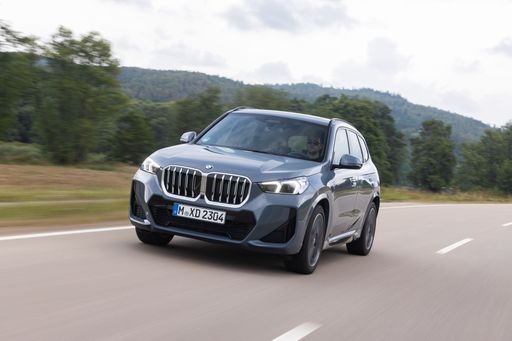
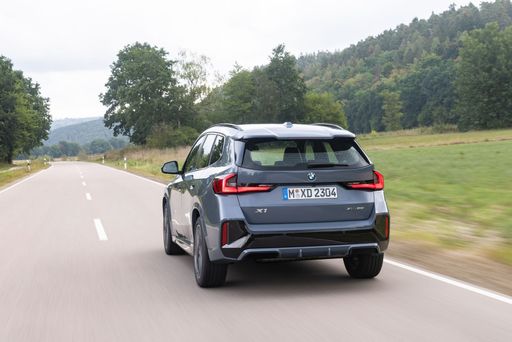
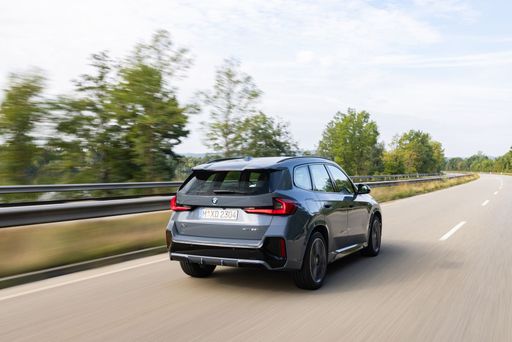
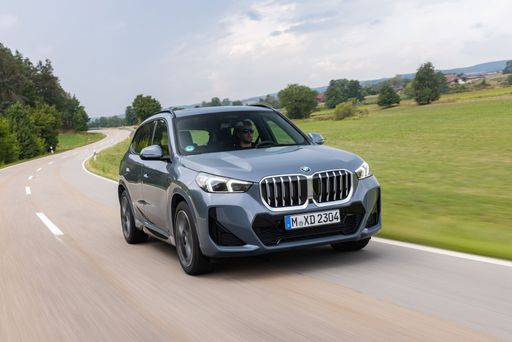
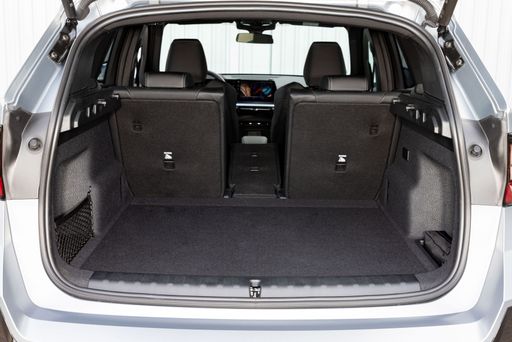
Vauxhall Astra
The Opel Astra strikes a neat balance between everyday practicality and engaging handling, so the daily grind suddenly feels a bit less dull. Inside it's intelligently packaged with modern kit and comfortable seating, making it a very sensible pick for buyers who want a dependable hatchback that doesn't take itself too seriously.
details

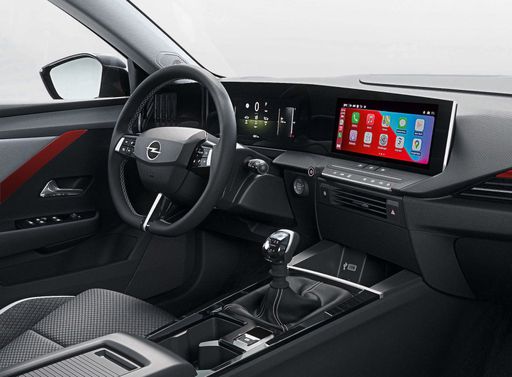
Costs and Consumption |
|
|---|---|
|
Price
38200 - 55500 £
|
Price
25200 - 40500 £
|
|
Consumption L/100km
2.5 - 7.7 L
|
Consumption L/100km
2.2 - 6 L
|
|
Consumption kWh/100km
-
|
Consumption kWh/100km
15.3 - 15.4 kWh
|
|
Electric Range
81 km
|
Electric Range
82 - 454 km
|
|
Battery Capacity
14.20 kWh
|
Battery Capacity
51 kWh
|
|
co2
57 - 175 g/km
|
co2
0 - 135 g/km
|
|
Fuel tank capacity
47 - 54 L
|
Fuel tank capacity
52 L
|
Dimensions and Body |
|
|---|---|
|
Body Type
SUV
|
Body Type
Hatchback
|
|
Seats
5
|
Seats
5
|
|
Doors
5
|
Doors
5
|
|
Curb weight
1575 - 1935 kg
|
Curb weight
1341 - 1736 kg
|
|
Trunk capacity
490 - 540 L
|
Trunk capacity
310 - 422 L
|
|
Length
4500 mm
|
Length
4374 mm
|
|
Width
1845 mm
|
Width
1859 - 1860 mm
|
|
Height
1630 - 1642 mm
|
Height
1441 - 1488 mm
|
|
Max trunk capacity
1495 - 1545 L
|
Max trunk capacity
1268 - 1339 L
|
|
Payload
490 - 500 kg
|
Payload
414 - 509 kg
|
Engine and Performance |
|
|---|---|
|
Engine Type
Diesel MHEV, Petrol MHEV, Petrol, Diesel, Plugin Hybrid
|
Engine Type
Petrol, Diesel, Electric, Petrol MHEV, Plugin Hybrid
|
|
Transmission
Automatic
|
Transmission
Manuel, Automatic
|
|
Transmission Detail
Dual-Clutch Automatic
|
Transmission Detail
Manual Gearbox, Automatic Gearbox, Reduction Gearbox, Dual-Clutch Automatic
|
|
Drive Type
Front-Wheel Drive, All-Wheel Drive
|
Drive Type
Front-Wheel Drive
|
|
Power HP
136 - 326 HP
|
Power HP
130 - 225 HP
|
|
Acceleration 0-100km/h
5.4 - 9.2 s
|
Acceleration 0-100km/h
7.5 - 10.6 s
|
|
Max Speed
190 - 233 km/h
|
Max Speed
170 - 210 km/h
|
|
Torque
230 - 477 Nm
|
Torque
230 - 360 Nm
|
|
Number of Cylinders
3 - 4
|
Number of Cylinders
3 - 4
|
|
Power kW
100 - 240 kW
|
Power kW
96 - 165 kW
|
|
Engine capacity
1499 - 1998 cm3
|
Engine capacity
1199 - 1598 cm3
|
General |
|
|---|---|
|
Model Year
2024 - 2025
|
Model Year
2023 - 2026
|
|
CO2 Efficiency Class
D, E, F, B
|
CO2 Efficiency Class
D, A, C, B
|
|
Brand
BMW
|
Brand
Vauxhall
|
Is the BMW X1 offered with different drivetrains?
The BMW X1 is offered with Front-Wheel Drive or All-Wheel Drive.
